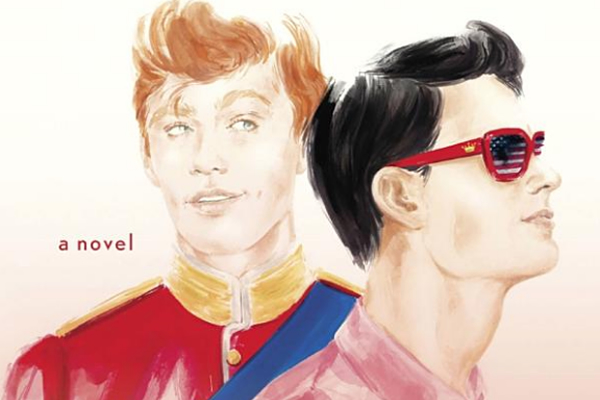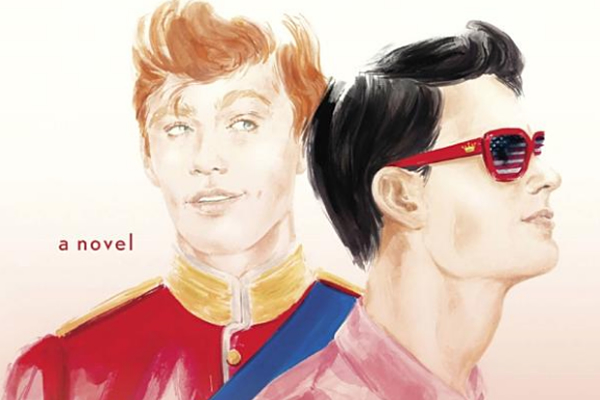
Is there anything more absurd than this, wondered gay poet and writer Drew Pisarra. Pisarra, then, was an assistant to a paralegal at a toothpaste company.
Fiercely protective of the pattern on its toothpaste, they wrote letters to rivals who, they felt, were infringing on their copyright.
Even when their competitors were in countries in the middle of a civil war, “They would write back, ‘we can’t respond now, we’re in a war,’” Pisarra said.
But that didn’t soften the heart of the toothpaste company. They’d insist that “this most important matter be dealt with as soon as the war ends,” Pisarra said.
If you think that authors don’t encounter the absurdity and grit of everyday life or that all writers do is drink coffee (or sip stronger libations) while looking at the sunset, you haven’t met Pisarra.
Pisarra, 56, whose new short story collection “You’re Pretty Gay” is just out from Chaffinch Press, has worked at everything from ventriloquism to domestic work.
The word “unique” is so hackneyed that it’s a cliche to say it’s a cliche. But there’s no other way to describe “You’re Pretty Gay.”
This collection “is a prime example of Drew Pisarra’s dangerously funny and queerly inventive brain,” said Kevin Sampsell, author of “This Is Between Us.” “Each story is its own performance, its own shattering of expectations and social mores.”
Pisarra, who lives in Manhattan, gives readers a mosaic of wit, surrealism, sex, queerness, memory, mortality and self-discovery.
In “You’re Pretty Gay,” there are gay bars in New York and New Orleans.
You’ll find everything from adolescent bullies fighting over a rare caterpillar to a character taking an AIDS test and, later, meeting up with Mrs. Claus.
“Mrs. Claus I didn’t even know you were alive,” says the narrator of “Arctic Chill.” “I didn’t even know you were real. I haven’t received a gift from you or your husband in ten years.”
Another of Pisarra’s tales revolves around a trip to hell. “I love traveling,” says the narrator of “The Hat from Hell, “I got this hat when I was in Hell back in 1992.”
In “Granny,” siblings gather after their mother’s death. “All anyone could remember of her was that chair, how she sat in it for the last 40 years,” Pisarra writes, “immobile as ‘Jeopardy’ and the ‘Wheel of Fortune’ glared at her night after night.”
Pisarra’s characters yearn to find love, sex, and who they really are.
“In my quest to bed mankind, I tended to avoid perfection’s rejection,” says the narrator of “Every Man for Myself.”
Pisarra, whose first short story collection “Publick Spanking” was published in 1996, was born in Orange, N.J. When he was in the third grade, he moved to Maryland. There, except for living in Oxon Hill for a year, he grew up in Silver Spring.
When Pisarra was growing up, being gay wasn’t even remotely on the horizon. “There was such denial in the culture then,” Pisarra said.
From early on, he had feelings for men. “I had a crush on a boy in kindergarten,” Pisarra said.
He consulted books and a priest, which wasn’t helpful. They said he’d grow out of it.
“As a teenager, I recognized that I hadn’t outgrown it,” Pisarra said.
Pisarra was a college freshman when he came out. “I sobbed the night I came out,” he said.
He was out in college, Pisarra said, “but I wasn’t getting laid.” That changed when he moved to New Orleans after college.
Pisarra graduated from Hofstra University in 1987 with a bachelor’s degree in theater.
In college, a professor had the students sit in a circle. Then, the teacher told them how she thought they’d be cast.
“She told me, ‘you’re a grotesque,’”Pisarra said, “‘You won’t work until you’re in your fifties. Because your face and body don’t match.’”
Pisarra was relieved to hear this. His sense of relief was related to being a young gay man in the late 1980s.
“I wasn’t interested in being closeted,” Pisarra said, “I wrote. I wanted to perform. I wasn’t interested in conforming.”
Since then, Pisarra has been creating – performing and writing his own material. Some of the stories in “You’re Pretty Gay” were originally created for the stage.
“I don’t write that often,” Pisarra said, “I started writing the stories in ‘You’re Pretty Gay’ 20 years ago.”
A prodigious reader, Pisarra has always “written to some degree,” he said.
Pisarra got turned on to writing poetry when he went to a meeting of a gay and lesbian writers group.
“There were, like, 10 people in this apartment,” Pisarra said, “there was a terrible woman sitting next to me.”
He would have dropped out of the group, if he hadn’t met writer Mare Davis, now his close friend.
“I said to her, ‘I never want to see any of these people again except you,’” Pisarra said, “She inspired me to get into poetry.”
Davis wrote the introduction to Pisarra’s poetry collection “Infinity Standing Up” (Capturing Fire Press).
Released in 2019, the volume of sexy, playful sonnets received glowing reviews from the Washington Post, the Blade and other outlets.
“Devour me! Think me not some crazy nut!,” Pisarra writes in one of his sonnets.
With lines like these, he gives Shakespeare a run for his money.
Pisarra has held a variety of jobs – many of which have involved the arts. He has helped homeless people with mental health issues to find housing.
“I ran a writers group for them,” Pisarra said, “I encouraged a super-talented woman to send her work out.”
The woman and Pisarra submitted their work to the same magazine. “Her work was accepted. Mine wasn’t,” he said, “I was thrilled!”
In an unusual career twist, Pisarra, who received a literary grant from the Café Royal Cultural Foundation, toured a ventriloquist act entitled “Singularly Grotesque.” He created the act after the Portland Institute for Contemporary Art commissioned him to develop a new solo piece.
“I was wandering around the library aisles and I found two (self-help) pamphlets on talking with ‘multiple’ selves,’” Pisarra said, “and I thought this is ventriloquism in a nutshell.”
Pisarra hadn’t watched much TV. But that didn’t keep him from interviewing with AMC to be its director of digital media.
“I thought why not,” Pisarra said, “it would be a chance to see what else is out there in the world.”
He worked on the websites for “Mad Men” and “Breaking Bad.” “It was a pleasure to be part of the online team for these cultural phenomena!” Pisarra said.
With Molly Gross, Pisarra co-founded Saint Flashlight. In this project, he and Gross find inventive ways to get poetry into public spaces.
One of the project’s most innovative efforts has been putting haiku on movie marquees. It’s fun to see people, looking up, counting the syllables, Pisarra said. You sweat when you put the letters up on the marquee, he added.
“It’s part of the fun! It makes you feel like you’re making something matter,” Pisarra said.
He doesn’t want poetry to be confined to “The New Yorker.” “It should push the envelope,” Pisarra said, “It’s not just for the upper crust.”








